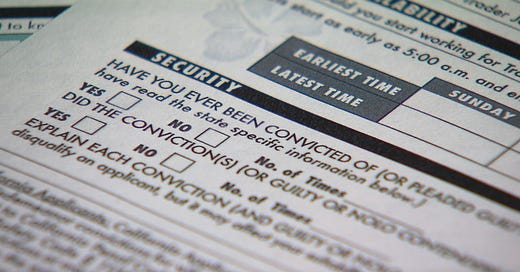“Second Chances Don’t Exist”: Criminal Records Follow Offenders Long After Time Served
“It’s an additional punishment, not set out in your sentencing or your plea deal"
Diane Carothers just wanted a better life for her and her three children when she lied on her application at Chicago’s GMAC Insurance.
The job application asked if she’d ever been convicted of a felony. It was 2000, and in the early 1980s, when Carothers was 19, she had been convicted of felony forgery for a $2,200 check.
The single mother knew a job like this could be life-changing. So she answered “no” and hoped that would be the end of it.
It wasn’t.
“Every year we had to sign a statement that asked that question again and every time I lied until 2006,” Carothers told me. “It was weighing on me.”
A week after telling the company the truth, Carothers was dismissed.
“I was pretty discouraged after that,” she said. “Since then I’ve been a stay at home mom with little jobs here and there.”
Carothers’s story is sadly familiar. A criminal history can have ramifications that dog former offenders for the rest of their lives, especially when it comes to finding steady work at a decent wage. Background checks can be devastating for job seekers with a criminal record, leading many people looking for a second chance to roll the dice and hope they don’t get caught.
Keep reading with a 7-day free trial
Subscribe to The Flashpoint to keep reading this post and get 7 days of free access to the full post archives.




